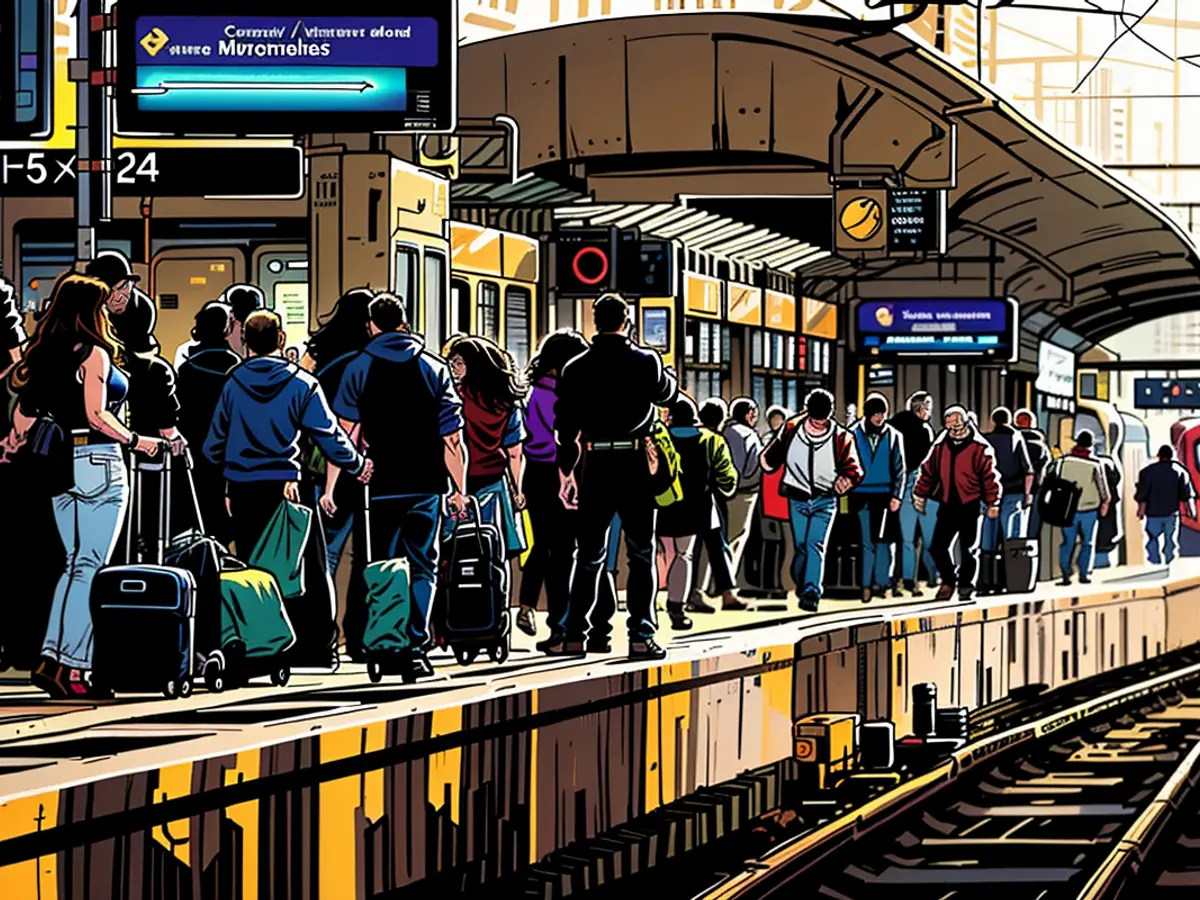"Calculations for driving schedules have been replaced by approximations instead"
Deutsche Bahn is facing a significant overhaul this year, with train schedules being altered up to 3 million times due to factors like construction sites, disruptions, and issues. This revamping process takes time.
Signal interruptions, control center malfunctions, and faulty switches have reach an extent at Deutsche Bahn that maintains a steady train flow nearly impossible. As reported by "Süddeutsche Zeitung", this year alone, Deutsche Bahn's schedules have to be changed between 2 to 3 million times. Planing train trips is becoming a gamble, with one member of the supervisory board stating, "Timetables are no longer calculated, but only estimated." This lack of structure has resulted in "a huge problem" and a "loss of control" in the timetables. Although the safety of the trains isn't compromised, the consequence is still "catastrophic."
This impact is most felt by passengers. They can no longer rely on trains running as scheduled, with the timetables often turning out to be unfulfilled promises, following years of inadequate rail network maintenance. New slow zones are being established at an unprecedented scale, as reported by the supervisory board, in an attempt to prevent faults in tracks, switches, or bridges from causing accidents.
Because the schedules are hardly attainable, Deutsche Bahn is keeping more and more reserve trains, often older models, in standby. These are deployed whenever the scheduled trains, as per the timetable, reach their destination late, causing the next journey to be cancelled. However, maintaining reserves and the necessary staff comes with a high cost, with Süddeutsche Zeitung predicting it may become unsustainable in the long run.
Improvements expected in years
According to Süddeutsche Zeitung, conversations with railway workers on site, managers, supervisory board members, and transport politicians, present a picture of Deutsche Bahn in a critical state. The state of the rail network and control centers has never been worse, with staff morale reaching all-time lows. Passengers will have to be patient for several years before many trains start running punctually again, with internal forecasts suggesting it could take at least 1 to 2 years for the current network repairs to yield noticeable improvement.
Unlike its previous leadership, the current top management at Deutsche Bahn acknowledges the grim situation. "Germany currently has the oldest control center landscape in Western Europe," said Philipp Nagl. Nagl is the CEO of DB Infrago, a DB subsidiary responsible for managing the rail network and stations in a non-profit manner. "For decades, too little was renewed, too little was invested in renovation," Nagl said, drawing from his experience at the Austrian railways, considered a role model for Deutsche Bahn.
With this largest renovation program in decades, By 2024, it's alleged that for the first time, the infrastructure aging will be stopped and the turnaround will be initiated. However, this turnaround will take time. If trains have to detour due to closed tracks where construction is ongoing, the already high load increases there. "We are then running even more on wear," says a train driver. He estimates that it will take more than ten years to bring the rail network back to order.
The ongoing issues at German Railways, such as signal interruptions and control center malfunctions, are attributed to the aging infrastructure and decades of underinvestment, as stated by the CEO of DB Infrago, Philipp Nagl. Despite the largest renovation program in decades, expected to be completed by 2024, it will take more than ten years for German Railways to bring their rail network back to optimal functionality.








